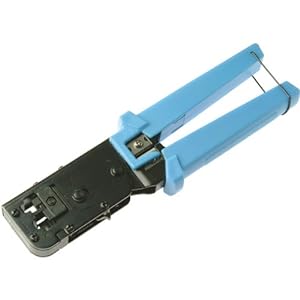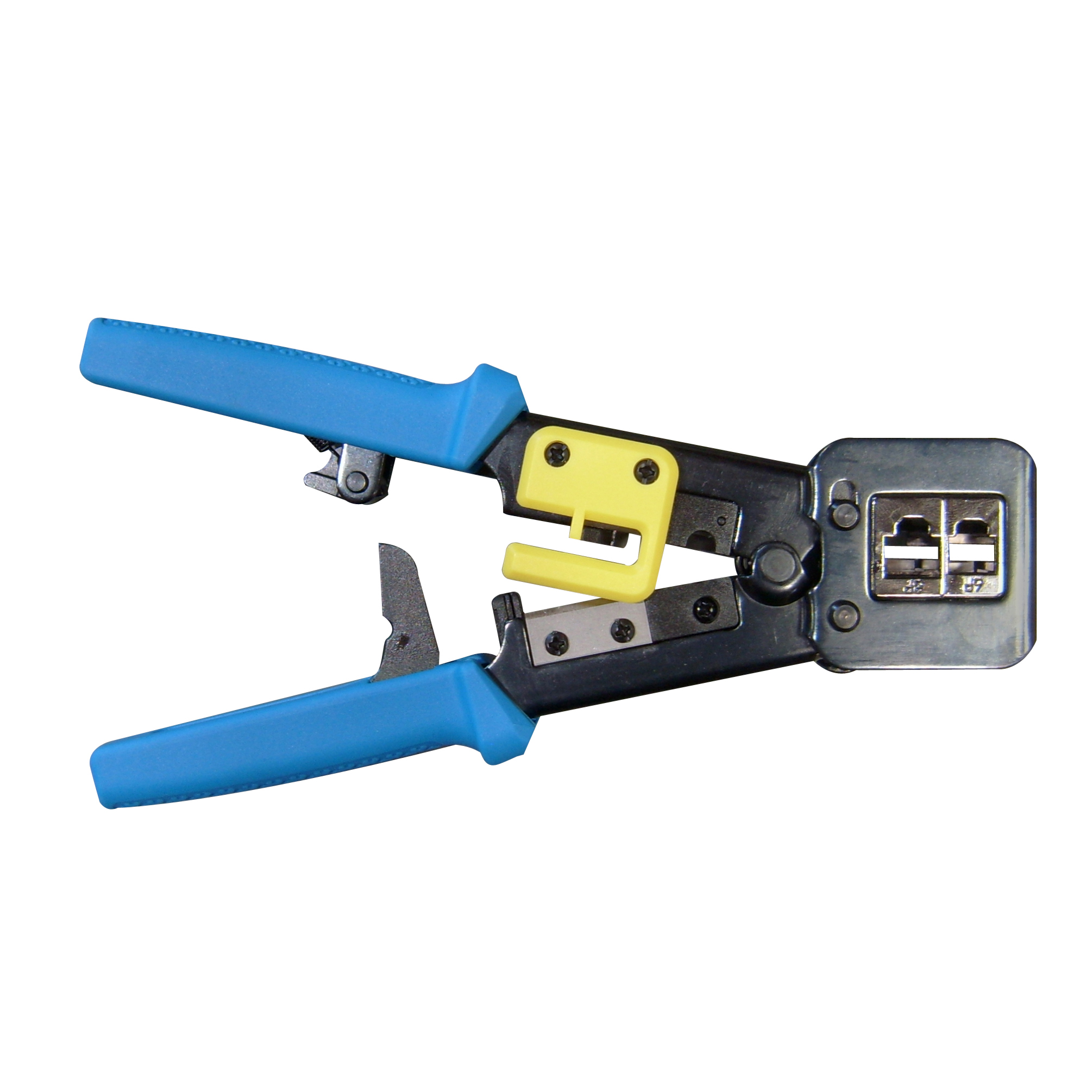NeverDie
Senior Member
I have some pre-existing cat5e in the walls on the first floor that's never been hooked up, and I want to capitalize on it now while it's still potentially useful (i.e. before it becomes obsolete). So, I thought I'd ask which tools/jigs/aids people here especially like for doing the task?
I found a couple on amazon that look promising, but not having done this before, I'm not really sure what to look for:
http://www.amazon.com/TRENDnet-Punch-Krone-Blade-TC-PDT/dp/B0000AZK4D/ref=pd_sim_e_3?ie=UTF8&refRID=0KRPTNEP5B3JPPWDSS46
http://www.amazon.com/iMBAPrice%C2%AE-Keystone-Punch-Stand-Quantity/dp/B00GR4KFB2/ref=sr_1_8?ie=UTF8&qid=1399413344&sr=8-8&keywords=keystone+ethernet
Are they overkill? Underkill?
Ironically, it was a parallel activity (http://cocoontech.com/forums/topic/26534-do-i-need-special-ethernet-cable-for-running-through-a-hot-attic/), where I opted for a tool-less solution, that made me aware that tools and solutions like this were being used. Prior to that, I had thought specialized crimpers were being used to make the connections, like:
http://www.amazon.com/Klein-Tools-VDV226-107-Compact-Ratcheting/dp/B00F6K5SY2/ref=pd_sim_hi_2?ie=UTF8&refRID=1RPT73GDGQH9XVASMEHH
or
http://deepsurplus.com/Network-Structured-Wiring/Modular-Wiring-Tools-RJ11-12-45/EZ-RJPro-HD-Crimp-Tool
What about cat5e shealthing strippers for removing outer jackets? Example:
http://www.amazon.com/Aposonic--XCT05-STRIP-Cutter-Stripper-Yellow/dp/B00B73Y82A/ref=sr_1_2?s=electronics&ie=UTF8&qid=1399416780&sr=1-2&keywords=cat5e+stripper
What about cable/wiring testers? For example:
http://www.amazon.com/TRENDnet-Network-Cable-Tester-TC-NT2/dp/B0000AZK08/ref=pd_sim_hi_4?ie=UTF8&refRID=1N961TSV4RF4YWCAD9DN
Worthwhile?
Any other tools, types of tools, or that reduce errors, catch mistakes, or do things better/faster/cheaper? Or tips, or tricks that you especially like?
The thread I referenced above also mentions some interesting keystones and patch panels, and since it's all related, I'd be interested in any favorites about those also.
I welcome any and all ideas and suggestions/recommendations.
I found a couple on amazon that look promising, but not having done this before, I'm not really sure what to look for:
http://www.amazon.com/TRENDnet-Punch-Krone-Blade-TC-PDT/dp/B0000AZK4D/ref=pd_sim_e_3?ie=UTF8&refRID=0KRPTNEP5B3JPPWDSS46
http://www.amazon.com/iMBAPrice%C2%AE-Keystone-Punch-Stand-Quantity/dp/B00GR4KFB2/ref=sr_1_8?ie=UTF8&qid=1399413344&sr=8-8&keywords=keystone+ethernet
Are they overkill? Underkill?
Ironically, it was a parallel activity (http://cocoontech.com/forums/topic/26534-do-i-need-special-ethernet-cable-for-running-through-a-hot-attic/), where I opted for a tool-less solution, that made me aware that tools and solutions like this were being used. Prior to that, I had thought specialized crimpers were being used to make the connections, like:
http://www.amazon.com/Klein-Tools-VDV226-107-Compact-Ratcheting/dp/B00F6K5SY2/ref=pd_sim_hi_2?ie=UTF8&refRID=1RPT73GDGQH9XVASMEHH
or
http://deepsurplus.com/Network-Structured-Wiring/Modular-Wiring-Tools-RJ11-12-45/EZ-RJPro-HD-Crimp-Tool
What about cat5e shealthing strippers for removing outer jackets? Example:
http://www.amazon.com/Aposonic--XCT05-STRIP-Cutter-Stripper-Yellow/dp/B00B73Y82A/ref=sr_1_2?s=electronics&ie=UTF8&qid=1399416780&sr=1-2&keywords=cat5e+stripper
What about cable/wiring testers? For example:
http://www.amazon.com/TRENDnet-Network-Cable-Tester-TC-NT2/dp/B0000AZK08/ref=pd_sim_hi_4?ie=UTF8&refRID=1N961TSV4RF4YWCAD9DN
Worthwhile?
Any other tools, types of tools, or that reduce errors, catch mistakes, or do things better/faster/cheaper? Or tips, or tricks that you especially like?
The thread I referenced above also mentions some interesting keystones and patch panels, and since it's all related, I'd be interested in any favorites about those also.
I welcome any and all ideas and suggestions/recommendations.







